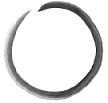This exercise is growing in popularity and I wish I could meet the originator of it. But it’s probably evolved and grown and been adapted and never shows up the same way twice. So, thankfully, there is not just one originator, but hundreds. This means you could answer these questions here and again elsewhere, and each set of answers would be different—and just as helpful.
Money is THE most loaded topic. Forget politics, religion, and abortion. If you really want to kill a party buzz, ask someone how much they make. Or how much debt they have. Or the sum of their monthly bills. Would you be willing to answer these questions in public? Most would not.
Most of us don’t even know those numbers. Do YOU know exactly how much you make? How much debt you have? The sum of your monthly bills?
But why? They’re just simple numbers, in black and white.
Or are they…?
We are bringing money into the light, you and I. One number at a time!
OH! It would be SO easy if it was about the numbers! But it’s not, is it? If it was, we’d all declare them loudly and clearly, as if talking politics, religion, and abortion!
Money is THE most loaded topic because money is what it MEANS, what it stands for. And this meaning is different for each of us. Broadly different.
In response to these phrases, what’s your first word, image, or feeling? Write them here or in your journal:
To me, money is:
People with not enough money:
People with enough money:
People with too much money:
What is “not enough” money?
What is “enough” money?
What is “too much” money?
I have __________ money.
We’ll come back to these in a while. Next, let’s revisit you as a little kid, growing up, impressionable. Take an hour or more to answer these in your journal. You may require several pages. The more vulnerable, honest, and open you are today, the more empowered about money you will be tomorrow.
What did you learn about money when you were a little kid?
Who taught you? Did they know they were teaching you?
What was your financial situation growing up?
How was money discussed or not discussed?
What did your father demonstrate or say about money?
What did you learn from him?
What did your mother demonstrate or say about money?
What did you learn from her?
What did your siblings or other family members demonstrate or say about money?
What did you learn from them?
What was not said about money?
What were your thoughts, feelings, and associations about money?
When did you first earn money? What was the situation?
What were your thoughts, feelings, and associations about earning money?
What did you do with your earned money? Save? Invest? Spend on others? Buy something for yourself? Be as specific as possible.
Jump to the present time:
What is your money situation now?
What has changed?
How did it change?
What other circumstances have contributed to your current money situation?
What are your thoughts, feelings, and associations about money today?
What do you spend money on today?
What do you not spend money on today?
What are your thoughts, feelings, or associations about:
How you earn money?
How you spend money?
How you save money?
How you invest money?
Your bank account?
What do you do or say, specifically, when you discuss money?
What do you NOT do or say, specifically, when you discuss money?
When you’re done, review your answers, filling in any additional thoughts, feelings, or memories.
The first time I answered these questions, I was pushing away a heavy, stone door, flinching and wincing under falling rocks, surrounded by clouds of fine, gray silt and dust. A desperately lost cave-dweller searching for—I didn’t even know. A Do-Over? I coughed and wheezed and sweated and, when I was done, took a looooooong break and a big, fat glass of wine. Or two. A few months later, I did this exercise with a small group and, for each of us, we had wildly differing experiences. For me, it was fun! Now I was the Sherpa guiding others into unknown territory, making it look adventurous and even fun. One could barely make a few notes and she didn’t finish it at all. She just couldn’t: too much guilt, pain, and fear. One couldn’t get past his father’s anger about money and his parents’ inevitable and devastating divorce. One skipped and hopped through it with a combination of simple and complex answers, her internal light bulb dinging quietly when she was nearly done.
Name your feelings or experiences in a word or simple phrase:
Take a deep breath. Are you ready to hear it? This is the foundation of your Relationship with Money.
(It’s not about the numbers, is it?)
Take another deep breath. And be gentle with yourself.
Know that this was learned unconsciously. You were taught, whether you were aware or not, this particular meaning of money. (Cue the dramatic and uplifting music score.) And now—perhaps for the first time, perhaps in a new way—you are free to build your own empire with this foundation, or with a new foundation of your own design!
Let’s return to those initial questions. Practice letting go of what you “knew” from the past, releasing into the wind those values and meanings you want to transform. Whoosh! There they go! Now, respond to these questions from your own new Money Inner Truth. Your process might be very, very different than it was before.
To me, money is:
People with not enough money:
People with enough money:
People with too much money:
What is “not enough” money?
What is “enough” money?
What is “too much” money?
I have __________ money.
